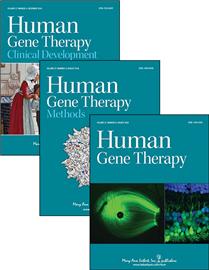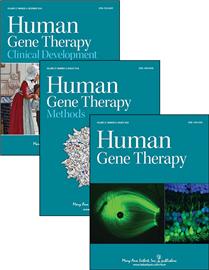
Credit: Mary Ann Liebert, Inc., publishers
New Rochelle, NY, February 23, 2017–Overwhelming evidence from the biomedical literature shows that adeno-associated virus 2 (AAV2), a viral vector often used to deliver therapeutic genes, is not associated with cancer and, in fact, may protect against cancer. Despite some previous reports insisting that AAV2 is an oncogenic virus, the preponderance of data indicates that recombinant AAV2 used in gene therapy does not integrate into the host genome increasing the risk of cancer and has anti-tumorigenic properties, as described in an article published in Human Gene Therapy, a peer-reviewed journal from Mary Ann Liebert, Inc., publishers. The article is available free on the Human Gene Therapy website until March 23, 2017.
In the article entitled "AAV Infection: Protection from Cancer," Arun Srivastava, University of Florida College of Medicine, Gainesville, and Barrie Carter, BioMarin Pharmaceutical, Novato, CA, discuss the sometimes contradictory reports on this contentious topic. The authors provide a comprehensive review of the biomedical research examining a link between AAV and tumor formation and conclude that the evidence does not support such a link. Srivastava and Carter also highlight research showing that AAV2 can negatively impact the lifecycles of several other viruses known to be associated with malignancy, such as HIV, hepatitis B virus, papillomaviruses, and adenoviruses.
"The estimation of risks from rAAV vectors is a complex exercise. It is particularly complex because AAV is a helper-dependent virus, and thus is often found in nature as a "co-infecting" virus along with other viruses," says Editor-in-Chief Terence R. Flotte, MD, Celia and Isaac Haidak Professor of Medical Education and Dean, Provost, and Executive Deputy Chancellor, University of Massachusetts Medical School, Worcester, MA. "These authors point out that there are substantial data to suggest that naturally occurring AAVs actually protect humans from developing cancer, particularly those cancers that may be caused by the other coexisting viruses."
###
Research reported in this publication was supported by the National Institutes of Health under Public Health Service Award Numbers R01 HL-097088 and R21 EB-015684. The content is solely the responsibility of the authors and does not necessarily represent the official views of the National Institutes of Health.
About the Journal
Human Gene Therapy, the Official Journal of the European Society of Gene and Cell Therapy, British Society for Gene and Cell Therapy, French Society of Cell and Gene Therapy, German Society of Gene Therapy, and five other gene therapy societies, is an authoritative peer-reviewed journal published monthly in print and online. Led by Editor-in-Chief Terence R. Flotte, MD, Celia and Isaac Haidak Professor of Medical Education and Dean, Provost, and Executive Deputy Chancellor, University of Massachusetts Medical School, Human Gene Therapy presents reports on the transfer and expression of genes in mammals, including humans. Related topics include improvements in vector development, delivery systems, and animal models, particularly in the areas of cancer, heart disease, viral disease, genetic disease, and neurological disease, as well as ethical, legal, and regulatory issues related to the gene transfer in humans. Its companion journals, Human Gene Therapy Methods, published bimonthly, focuses on the application of gene therapy to product testing and development, and Human Gene Therapy Clinical Development, published quarterly, features data relevant to the regulatory review and commercial development of cell and gene therapy products. Tables of contents for all three publications and a free sample issue may be viewed on the Human Gene Therapy website.
About the Publisher
Mary Ann Liebert, Inc., publishers is a privately held, fully integrated media company known for establishing authoritative peer-reviewed journals in many promising areas of science and biomedical research, including Nucleic Acid Therapeutics, Tissue Engineering, Stem Cells and Development, and Cellular Reprogramming. Its biotechnology trade magazine, GEN (Genetic Engineering & Biotechnology News), was the first in its field and is today the industry's most widely read publication worldwide. A complete list of the firm's 80 journals, books, and newsmagazines is available on the Mary Ann Liebert, Inc., publishers website.
Mary Ann Liebert, Inc. 140 Huguenot St., New Rochelle, NY 10801-5215 http://www.liebertpub.com Phone: (914) 740-2100 (800) M-LIEBERT Fax: (914) 740-2101
Media Contact
Kathryn Ryan
[email protected]
914-740-2250
@LiebertPub
http://www.liebertpub.com
############
Story Source: Materials provided by Scienmag





